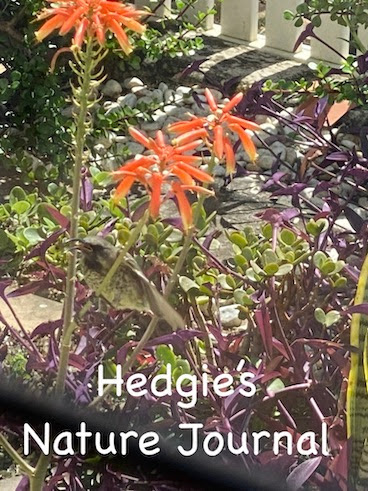The great debate is whether one should interfere with nature or not, whether to help or 'rescue' an animal in peril or not. The problem is that it is human nature to rescue things and my take on it is normally to let nature take its course. If you should find a baby bird in your garden, it is best to leave it alone as the parents know it's there and will continue feeding it. That is how it learns to fly, how it gets to know its territory and learns all it needs from its parents for survival. If you have dogs or cats, this could present a problem, so, if possible, try and get the fledgling back to its nest or at least up into a tree. It's a myth that the parents will abandon it if they 'smell human contact' on their baby, they will still keep on tending to it.
But sometimes one is presented with a situation where it is impossible not to interfere or to help, like finding an owl entangled in a barbed wire fence or finding an animal with a serious injury that requires medical attention. And living on a smallholding in the country, I am often faced with scenarios like that.
On the home-front side, it's terribly hard to watch when a hen decides it's time for her babies to make their own way in the world. But that's the way of nature. Solly's hen (above) had 8 of the most gorgeous babies and she was a really wonderful other, tending to their every need, finding them succulent insects and protecting them and keeping them warm.
But when they were the tender age of 7 weeks, she decided it was time to go back to Mr. Rooster and besides, nature was calling and she wanted to lay an egg. She started pecking and chasing them and generally being nasty until they were too scared to go near her. She then took off in search of Mr. Rooster. They clumped together, walking around the property, constantly calling for her, absolutely breaking my heart.
They soon found solace in my garden where they kept close to me as I went about my chores. They knew me very well, as from birth I would take them snacks and seeds which they eagerly took out of my hands. They even allowed me to pick them up, trustingly sitting in my hand while I cuddled them.
Now they are almost 4 months old, just about fully grown and quite independent, joining the rest of Solly's chickens when I feed in the mornings and afternoons and often looking for me in the house, hoping for a snack of minced meat, their favourite.
Yesterday I heard a strange, forlorn call in my garden, and not recognising it, I went outside to investigate. There was this 'unknown' bird sitting on my internet aerial, so I got the binoculars to have a better look and soon realised it was a juvenile Red-winged Starling, therefore I never recognised it's call. I have never heard a young Starling calling for its parents and it sat there for a half an hour, calling and calling, with no response from anybody, until it eventually took off to search somewhere else. So, so sad...
Many a time I have also watched as the Mynah's lead their off-spring out of the garden, taking them to another area to fend for themselves, returning alone a couple of days later. That is nature's way of protecting the food source in an area and from over-population. However, Laughing Doves do not seem to adhere to this law of nature - I have hundreds in my garden - where they breed, they feed! Smile!
Laughing Doves early watching and waiting as I prepare the feed tables at 6am.
::




















